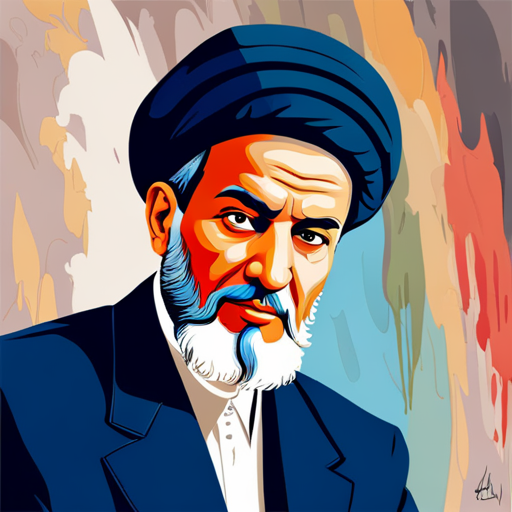Autobiography of Ayatollah Khomeini
Early Life and Religious Education
I am Ayatollah Ruhollah Khomeini, born in 1902 into a family with a long tradition of religious scholarship in Khomein, a small town in central Iran. I was brought up in a deeply religious environment. My father was murdered when I was only five months old, and when I turned 15, I lost my mother and aunt. These early hardships only deepened my commitment to my faith.
I moved to the holy city of Qom to further my studies in Islamic jurisprudence, philosophy, and mysticism. I was an ardent student and soon began teaching, eventually rising to the position of Ayatollah, a high-ranking title given to experts in Islamic laws and jurisprudence.
Opposition to Shah’s Policies
As the years went on, I became increasingly disillusioned with the rule of Mohammad Reza Shah, the monarch of Iran, particularly his “White Revolution”, a series of reforms that were influenced heavily by Western ideas. I saw the Shah as an autocrat who was moving Iran away from its Islamic roots and traditions.
I vocalized my opposition to the Shah’s rule, gaining a following amongst those who felt similarly alienated by his policies. However, my vocal criticism led to my exile from Iran in 1964.
Exile and the Iranian Revolution
During my exile, I lived in Turkey, Iraq, and finally in France. From abroad, I continued to inspire a growing resistance to the Shah’s regime through my writings and sermons, many of which were smuggled into Iran in the form of tapes.
In 1979, after years of widespread civil unrest and protests, the Shah was overthrown in what came to be known as the Iranian Revolution. It was a momentous event, led by the people, influenced by my revolutionary Islamic ideology.
Establishment of the Islamic Republic and the Role of Supreme Leader
Upon my return to Iran, we held a referendum in which the people overwhelmingly voted for an Islamic Republic. As the Supreme Leader, a role designed to ensure the continuance of a religiously guided state, I oversaw a radical transformation of Iran’s laws, economy, and society in line with Shi’a Islamic principles.
During my rule, Iran faced numerous challenges. We went through a grueling eight-year-long war with Iraq, endured international isolation, and navigated internal political disputes. Despite these adversities, I remained steadfast in my conviction that Iran must uphold its Islamic character and independence.
Final Years and Legacy
I passed away on June 3, 1989, leaving behind a powerful legacy. My vision of an Islamic Republic endures in modern Iran, marking a unique experiment of political governance deeply interwoven with religious principles.
My life was marked by steadfast commitment to my faith, resistance against what I perceived as oppressive rule, and the establishment of a unique Islamic political structure. Regardless of how one views my legacy, my impact on Iran and the wider Muslim world is undeniable.
Show more +
